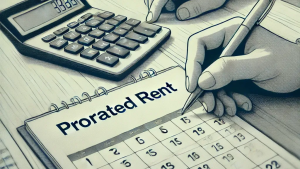Bronx is a highly competitive borough in NYC with an average home price of $452,126. In this borough, there are approximately 809 properties available in inventory. The borough offers lucrative investment opportunities and effective property maintenance services to enhance your ROI.
This blog provides an overview of the Bronx property management market, and you can enhance your ROI with professional property management services. It also elaborates on what factors you should consider while investing in Bronx property management services.
Understanding the Bronx Property Management Market

The Bronx property management market in 2025 is facing a shift towards AI-driven automation, an increase in prices, sustainable initiatives, data analytics, and a rise in PropTech solutions.
In the first quarter of 2025, the borough reported a 1.1% increase in rental property value. The average rent went from $2,446 to $2,473 in February 2025. Compared to last year, the average rent of a studio has increased by 12.67%, reflecting high demand and competition. The rent in the top cities of Bronx–Riverdale, Morris Heights, and Mott Haven—remains competitively high.
The Bronox property management is witnessing a shift towards green building, energy efficiency, and sustainability. Building and large facilities account for almost 40% of the global energy consumption. To cope with this, more and more buildings are incorporating energy-efficient HVAC systems, effective waste management solutions, and green building materials.
The Bronx property rental market is developing rapidly with a profound shift in management strategies. Landlords and property managers are investing in innovative PropTech solutions to reduce operational costs, enhance administration, and maximise tenant satisfaction.
Understanding these shifts in the market is a must to make sound decisions to enhance return on investment. You can consult a professional property manager to protect your real estate investment from market risks and losses.
Importance of Bronx Property Management in Maximising Your ROI

Managing property in a competitive market like the Bronx, where the prices and market trends keep fluctuating, is a complex and tough task. Investing in professional Bronx landlord services not only saves you money but also ensures effective administration throughout the year.
Here is why you should invest in Bronx property management services:
1. Effective Property Upkeep and Repair
Enhanced Bronx landlord services ensure your property is well-maintained, attractive, and repaired. This prevents deterioration, preserves property value, and mitigates the risk of costly damages and repairs.
2. Tenant Screening and Maintenance
Professional Bronx property management services include a comprehensive approach to tenant screening, which includes verifying the tenant’s identity, conducting a background check, and analyzing previous rental history. Furthermore, it also includes handling tenant complaints and retaining them in the long run.
3. Optimizes Financial Management
Financial management is a must to handle the operational and administrative costs of the property effectively. A proper financial management strategy ensures that property remains financially viable and profitable. A professional property management firm develops a sound and strategic financial plan and maintains all the costs productively.
4. Enhanced Operational Efficiency
A reliable and experienced Bronx property management firm brings expertise, strategies, and innovative approaches to streamline operational efficiency. Such firms utilize IoT, AI-powered solutions, and PropTech to automate tasks, monitor real-time data, and improve the overall efficiency.
5. Efficient Rent Collection
A professional property management firm implements streamlined rent collection systems and enforces consistent payment policies. This helps maintain rental income, reduces late payments, and protects owners from financial disruptions, directly contributing to higher ROI.
How to Choose a Reliable Bronx Property Management Firm?
Choosing the right property management firm in the Bronx is key to protecting your investment and maximizing returns. A reliable firm will handle operations efficiently, keeping tenants happy and properties well-maintained. Here’s how to find the right one:
1. Verify Licenses and Certifications
Ensure the firm is licensed to operate in New York and holds relevant industry certifications. Credentials like CPM (Certified Property Manager) show professionalism and adherence to industry standards, offering peace of mind for property owners.
2. Check Experience in the Bronx Market
Local experience matters. A firm familiar with Bronx neighborhoods understands rent trends, tenant expectations, and local regulations. This localized knowledge helps them manage your property more strategically and profitably.
3. Evaluate Communication and Transparency
Effective communication ensures you’re always informed. Choose a firm that offers regular updates, quick responses, and transparent reporting. Clear communication builds trust and helps you stay involved without micromanaging.
4. Review Services Offered
Look beyond basic rent collection. A good firm should offer tenant screening, maintenance coordination, legal support, and financial reporting. Comprehensive services mean fewer responsibilities for you and more consistent performance.
5. Read Client Reviews and Testimonials
Past clients provide insight into how the firm operates. Look for consistent positive feedback, particularly regarding reliability, professionalism, and tenant satisfaction. Avoid firms with recurring complaints or unresolved issues.
6. Compare Fees and Contract Terms
Understand how and what they charge—whether it’s a flat fee or percentage-based. Review contract terms carefully for hidden fees, termination clauses, and service scope to ensure the partnership aligns with your financial goals.
Ready to Maximize Your Rental Income in the Bronx?

Effective Bronx property management plays a vital role in maximizing your investment returns. From strategic property management tips to proactive maintenance and legal compliance, a skilled property management firm ensures your property operates at peak performance. With their local expertise and access to smart technology, they streamline operations, reduce risks, and boost profitability.
Partnering with a reliable management firm like Citadel Property Management Corp. allows you to enjoy the benefits of real estate investing without the day-to-day stress and uncertainty.
Frequently Asked Questions
1. What role does maintenance play in ROI?
Regular maintenance prevents costly repairs, preserves property value, and keeps tenants satisfied, contributing to sustained rental income.
2. How does setting the right rental price affect returns?
Competitive pricing attracts tenants quickly, minimizing vacancy periods and maximizing income.
3. What is the benefit of proactive property management?
Proactive management addresses issues before they escalate, maintaining tenant satisfaction and avoiding expensive emergency repairs.
4. How does market analysis impact property investment?
Regular market analysis helps in adjusting rental rates appropriately and identifying opportunities for property improvements or acquisitions.














